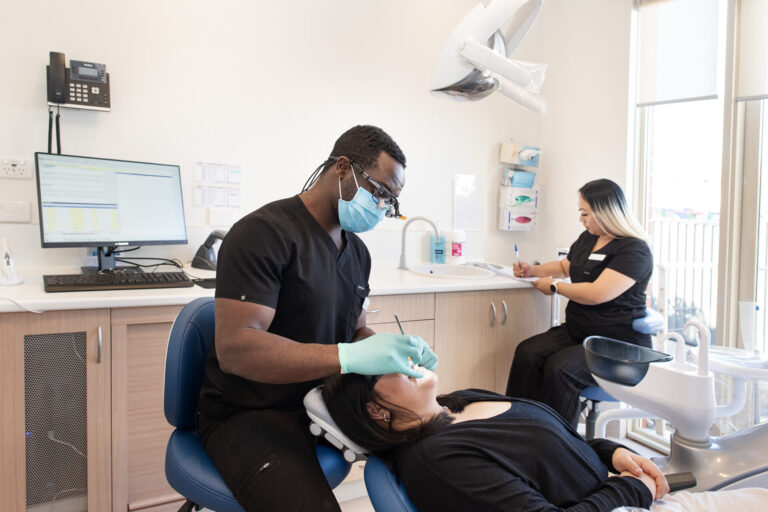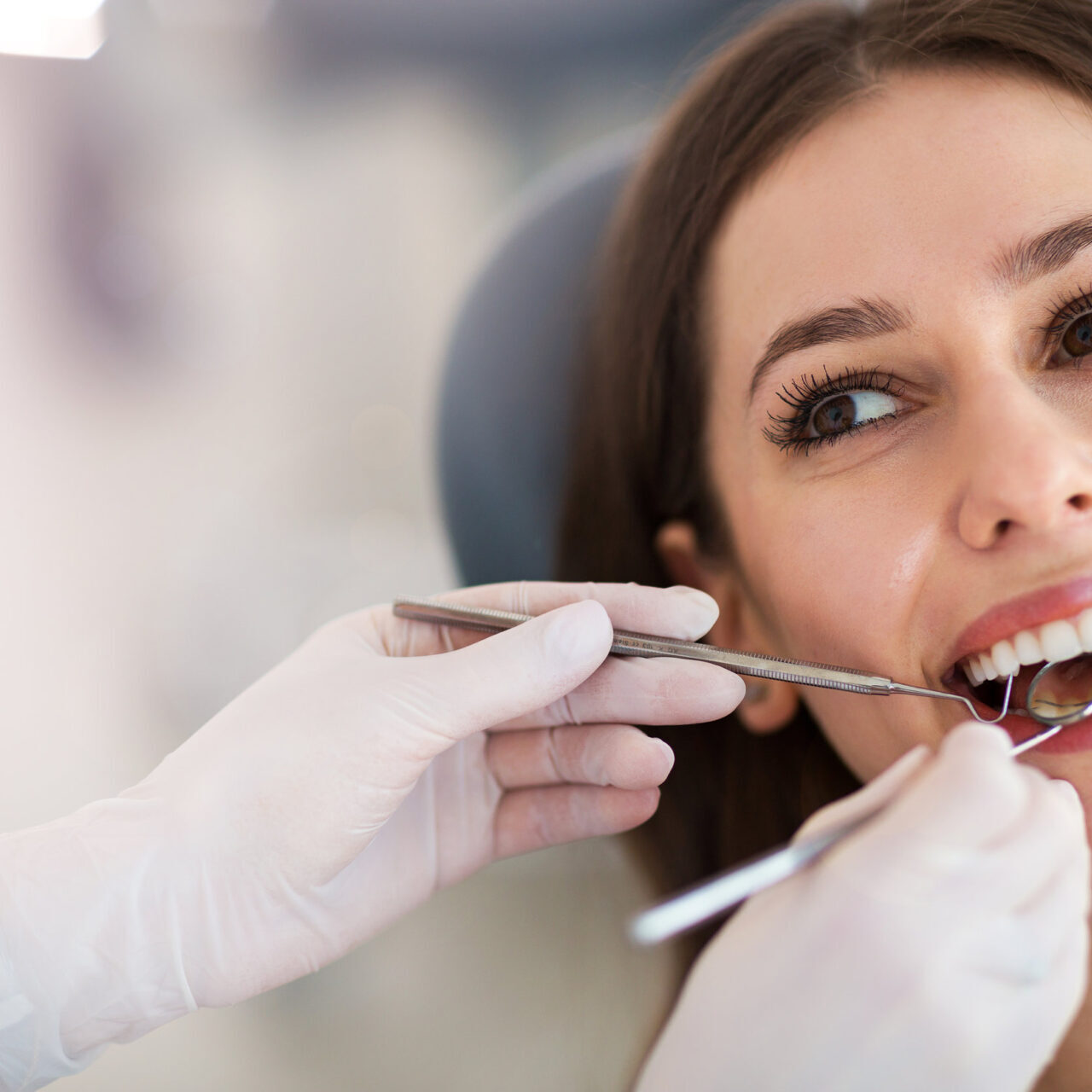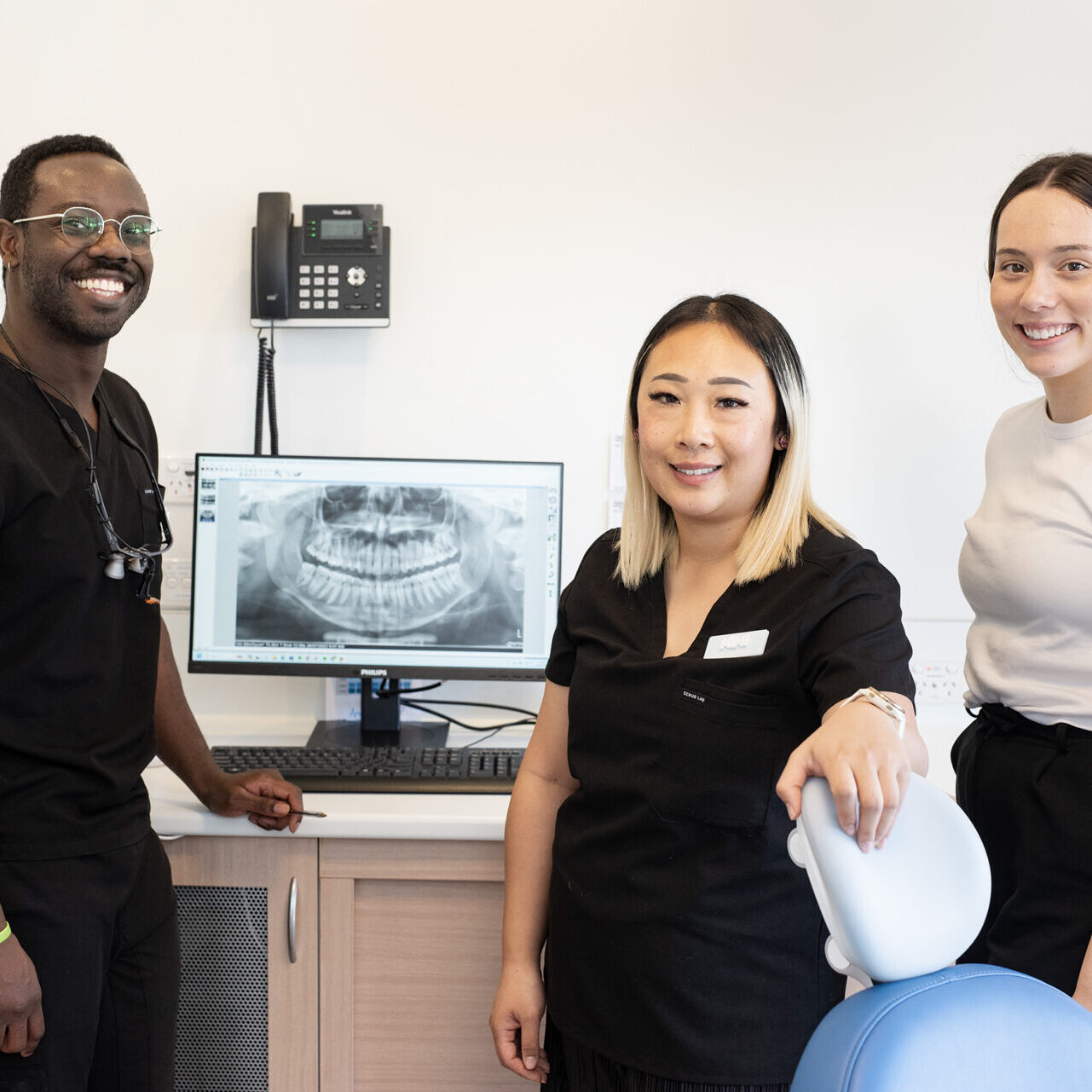Gum Disease at My Smile Dental
Gum disease is one of the most common oral health issues seen across various age groups, but it often goes unnoticed in its early stages. At My Smile Dental, we’re committed to identifying and treating gum disease before it progresses—helping you protect your teeth, gums, and overall wellbeing.
Gum disease, also known as periodontal disease, is an infection of the tissues that support your teeth. It typically begins with plaque buildup along the gumline, which causes inflammation known as gingivitis. If left untreated, it can progress into periodontitis—a more serious form of gum disease that can result in gum recession, bone loss, and even tooth loss.
The good news? It is preventable and manageable with early diagnosis and the right care. Our experienced team offers gentle, comprehensive gum care for all stages of periodontal disease to restore and maintain your oral health.
Signs and Symptoms
Many people don’t realise they have gum disease until it has already progressed, often without pain. That’s why regular dental check-ups are essential. Common signs and symptoms include:
- Bleeding gums, especially during brushing or flossing
- Red, swollen, or tender gums
- Persistent bad breath
- Receding gums or teeth appearing longer
- Loose or shifting teeth
- Pain when chewing
If you notice any of these signs, it’s important to seek dental care promptly.
What Causes Gum Disease?
Gum disease is primarily caused by plaque—a sticky film of bacteria that forms on your teeth. When plaque isn’t removed through proper brushing and flossing, it hardens into tartar (calculus), which can only be removed professionally. The bacteria in plaque and tartar produce toxins that irritate the gums and trigger inflammation.
Several factors can increase your risk of gum disease, including:
- Poor oral hygiene
- Smoking or tobacco use
- Diabetes
- Hormonal changes (such as during pregnancy)
- Genetic predisposition
- Certain medications
- Poor nutrition
At My Smile Dental, we take all these factors into account when assessing your gum health and creating a tailored treatment plan.

Our Gum Disease Treatments
Our team offers a range of treatments designed to stop the progression of gum disease and promote healing.
Professional Cleaning
In the early stages (gingivitis), gum disease can often be reversed with a professional clean and improved at-home care. We’ll remove plaque and tartar from the teeth and gumline, helping to reduce inflammation. You can find more information about what this looks like on our General Dentistry page.
Scaling and Root Planing
For moderate to severe gum disease, a deep cleaning known as scaling and root planing is required. This non-surgical treatment removes plaque and tartar from below the gumline and smooths the root surfaces to help gums reattach to the teeth.
Ongoing Maintenance
Gum disease is a chronic condition, and long-term maintenance is key. We’ll set up a personalised schedule of regular hygiene visits and provide guidance on effective brushing and flossing techniques to keep your gums healthy.
Preventing Gum Disease
Prevention is always better than cure. Here’s how you can help prevent gum disease:
- Brush your teeth twice a day with fluoride toothpaste
- Floss daily to remove plaque between teeth
- Visit your dentist regularly for check-ups and professional cleans
- Avoid smoking and limit alcohol consumption
- Maintain a healthy, balanced diet
- Manage underlying health conditions like diabetes
You can find more information at the Australian Dental Association.
Why Choose My Smile Dental?
At My Smile Dental, we combine professional expertise with a warm, personalised approach to ensure you feel comfortable and confident in your care. Our team is experienced in gum care and we use modern up-to-date techniques to deliver effective, gentle treatment.
Whether you’re experiencing symptoms or simply want to stay on top of your oral health, we’re here to support your journey toward a healthier smile. Early intervention can make all the difference.
Book Your Consultation Today
Gum disease can progress silently—early treatment is key. Book your periodontal check-up at My Smile Dental to keep your gums and smile healthy.

Contact our Team
Opening Hours
Monday: 8:30am-6:00pm
Tuesday: 8:30am-6:00pm
Wednesday: 8:30am – 6:00pm
Thursday: 8:00am-8:30pm
Friday: 8:30am-6:00pm
Saturday: 8:00am-2:30pm
Phone
03 9390 9333
info@mysmiledental.com.au
Address
518 Melton Hwy
Sydenham Victoria 3037
Australia




